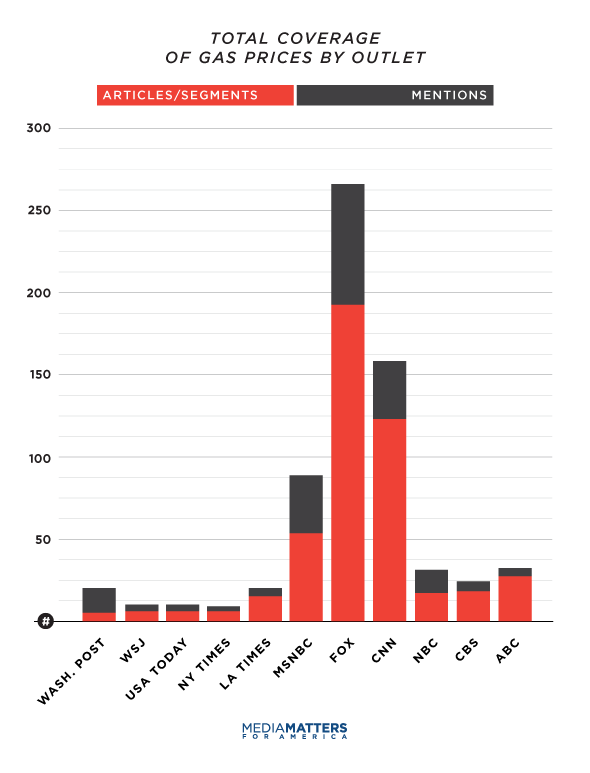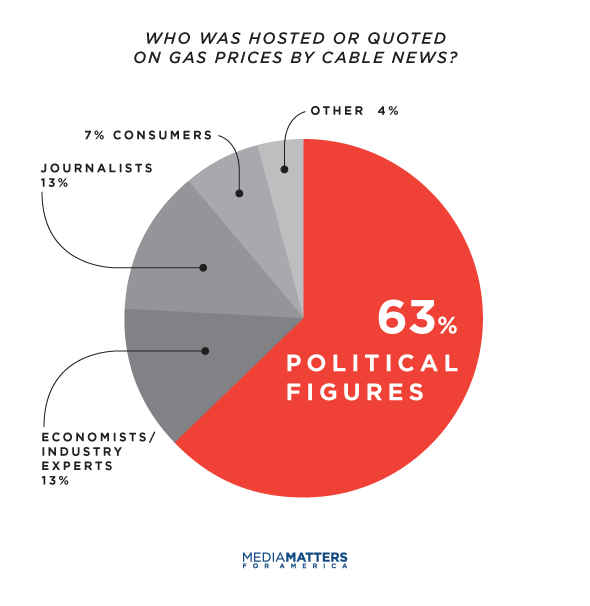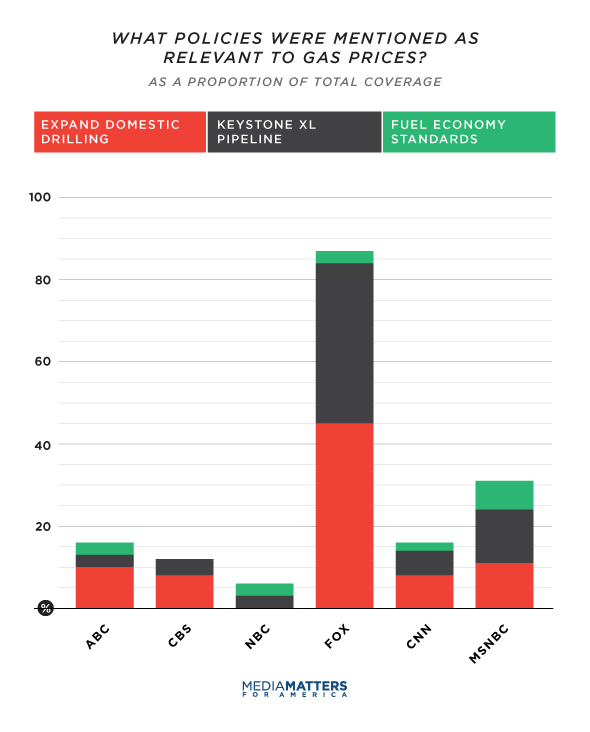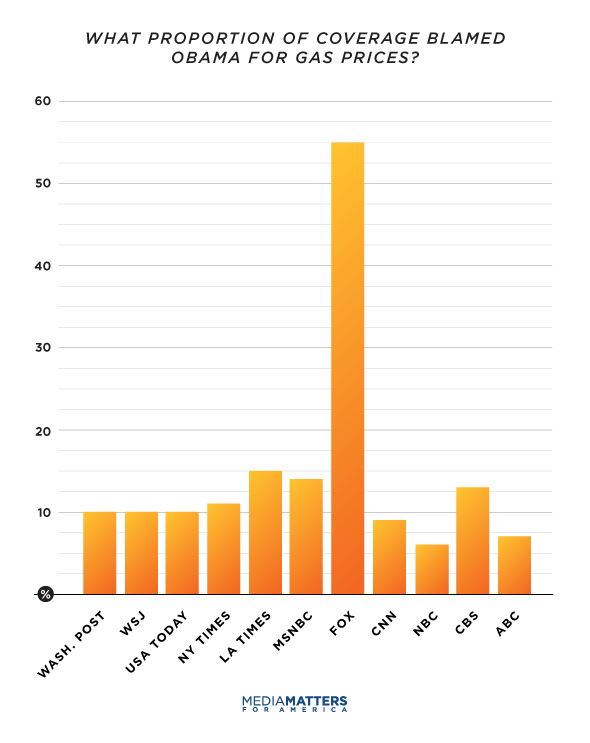[See update at bottom.]

Painful source: Why can't the media get gas prices right?
Media coverage of gas prices has made me want to smash my head on my desk. So it was with some amusement that I read the first paragraph of Politico’s piece on how dumb voters are:
Voters are appalled at President Barack Obama’s handling of gas prices, even though virtually every policy expert in both parties says there’s little a president can do to affect the day-to-day price of fuel in a global market.
Ha ha stupid voters! Where do they get such bad information?
As Politico says, the U.S. president has virtually no control over gas prices. Time’s Bryan Walsh lays it out clearly here (in an entirely factual piece that is nonetheless labeled “viewpoint”). Gas prices are tightly linked to oil prices, which are set by forces over which the U.S. has little control.
This is something that energy experts and analysts are more or less unanimous on. The Initiative on Global Markets gathered a panel of economic experts, from across the professional and ideological spectrum, and asked them to react to this thesis: “Changes in U.S. gasoline prices over the past 10 years have predominantly been due to market factors rather than U.S. federal economic or energy policies.” Some 92 percent agreed. Eight percent were “uncertain.” Not a single one disagreed.
So, just to be clear: Anyone who says the president is responsible for gas prices is either lying or woefully ignorant. This category includes all of the Republican candidates for president, virtually every GOP elected official, many conservative Democrats, legions of conservative and centrist pundits, and occasionally Obama himself.
But we were talking about the public. What explains the public’s ignorance of this basic consensus? Well, let’s turn to an analysis of media coverage of gas prices in January and February, just put out by Media Matters. Who’s been covering gas prices?
Ah. Most coverage has been in the dumbest outlets: cable news channels. Especially Fox. Who’s been speaking to the public in these segments?
Ah. Most comment has been delivered by the dumbest, most mendacious people. And what do they talk about when they talk about gas prices?
Ah. Mostly political figures, mostly speaking on Fox and other cable news channels, mostly said or implied that domestic drilling and pipelines could lower gas prices. (And barely mentioned efficiency, which actually could lower consumer gas bills.)
And the coup de grace?
What these charts make clear is that there has been a concerted effort on the part of the political right to politicize gas prices, tie them to domestic drilling and fracking, and use them to hurt Obama. Consequently, as a new Pew poll found, opinion is swinging slightly in favor of fossil fuels, mostly among conservatives. (Though it’s worth noting that across parties, majorities of Americans still prefer developing clean energy to developing more fossil fuels.)
Just as bad as misinformation — and even more ubiquitous — is failure on the part of reporters to be, in New York Times ombudsman Arthur Brisbane’s now-infamous term, truth vigilantes. Day after day I read stories about GOP attacks on gas prices and almost never do I see reporters note the simple fact that Republicans are wrong. Obama is not responsible for gas prices. He cannot lower them. This is not an opinion or a “viewpoint,” it’s just what follows from the basic facts of energy production and consumption.
This is what drives me crazy about political media coverage. There are tons of stories on GOP attack strategy and Dem defense strategy and horse-race coverage of who’s up and who’s down. There’s quite a bit of coverage of public opinion. But coverage (or even mention) of the facts, the simple realities of gas and oil prices, is absurdly rare.
Just to pick a recent and not particularly remarkable example, check out this piece in The New York Times‘ Caucus blog. It notes Romney tying high gas prices to Obama’s refusal to drill in the Arctic Refuge and the delay in the Keystone XL pipeline. Then it notes Romney explicitly denying — in fact, professing not even to understand — the idea that tensions with major oil producer Iran, which GOP pols are striving to exacerbate , are having an impact on oil and gas prices.
Then it skips straight into polls and how gas prices are affecting them.
At no point in between does it pause to note that Romney is wrong. He is incorrect, either lying or ignorant. There is no credible energy analyst on the planet who believes that drilling in the Arctic and fast-tracking Keystone would have any discernible effect on U.S. gasoline prices. And it is common knowledge among analysts that tensions with Iran are boosting prices.
Romney is wrong. He’s wrong in a way that is dead easy to fact-check. Yet the reporter doesn’t even think to mention it. Are the merits of Romney’s claims really of no interest to NYT readers?
I see a dozen examples like this a day. Newt Gingrich is getting away with the ludicrous promise that he’ll reduce gas prices to $2.50/gallon, mainly because he knows the political media will cover it as a gambit, a strategy, a poll-mover, but never as a simple matter of fact.
Here’s a thought for Politico: In your article about how dumb voters are, you note that the president can’t control gas prices. Why not also note that fact in stories like this or this or this? Even in Politico’s purported gas-price fact-check piece, the reporter never forthrightly states the central fact that there’s little the president or Congress can do about prices other than encourage efficiency and conservation.
Kudos again to Walsh. Would that other reporters followed his lead, and not just in the “opinion” section. How else is the public supposed to learn the truth?
——
UPDATE: Since I did some media bashing in this post, it’s worth noting that a piece out today from Seth Borenstein and Jack Gillum of Associated Press shows what it looks like when the media does it right. They go back and analyze 36 years worth of U.S. gas prices, cross-reference them against 36 years of U.S. drilling, and find … shock! … no connection at all. They cite experts instead of politicians. They show their work. Why, it’s downright inspiring! And educational. I hope the folks at Fox News read it.







